University of Notre Dame
Notre Dame Magazine

His Last Game
Author: Brian Doyle ’78
Published: Autumn 2012
Editor’s note: On a peaceful Saturday morning in early September I sat in my backyard, savoring the scene before me: the grass and trees and black-eyed Susans, all feeling different now — as the sunlight and scents took on an autumn mood. It all reminded me of a lovely essay we published in 1987, and this got me to conjuring a list of all-time personal favorites published in the magazine over the years. I decided to share them with you, a new one each Saturday morning until the calendar reaches 2024. Brian Doyle ’78 graced our pages with a good many beautiful pieces. This may be his most memorable. From autumn 2012. —Kerry Temple ’74
We were supposed to be driving to the pharmacy for his prescriptions, but he said just drive around for a while, my prescriptions aren’t going anywhere without me, so we just drove around. We drove around the edges of the college where he had worked and we saw a blue heron in a field of stubble, which is not something you see every day, and we stopped for a while to see if the heron was fishing for mice or snakes, on which we bet a dollar, me taking mice and him taking snakes, but the heron glared at us and refused to work under scrutiny, so we drove on.
We drove through the arboretum checking on the groves of ash and oak and willow trees, which were still where they were last time we looked, and then we checked on the wood duck boxes in the pond, which still seemed sturdy and did not feature ravenous weasels that we noticed, and then we saw a kestrel hanging in the crisp air like a tiny helicopter, but as soon as we bet mouse or snake the kestrel vanished, probably for religious reasons, said my brother, probably a lot of kestrels are adamant that gambling is immoral, but we are just not as informed as we should be about kestrels.
- A Brian Doyle Reader
- The Stories That Save Us
- Napper of the Year
- The dogwood bloomed, too
- Closing time
- If Time Were Not a Moving Thing
- The give and go
- The order by which people are admitted to heaven
- All the flinty women
- Wise man’s misdirection
We drove deeper into the city and I asked him why we were driving this direction, and he said I am looking for something that when I see it you will know what I am looking for, which made me grin, because he knew and I knew that I would indeed know, because we have been brothers for 50 years, and brothers have many languages, some of which are physical, like broken noses and fingers and teeth and punching each other when you want to say I love you but don’t know how to say that right, and some of them are laughter, and some of them are roaring and spitting, and some of them are weeping in the bathroom, and some of them we don’t have words for yet.
By now it was almost evening, and just as I turned on the car’s running lights I saw what it was he was looking for, which was a basketball game in a park. I laughed and he laughed and I parked the car. There were six guys on the court, and to their credit they were playing full court. Five of the guys looked to be in their twenties, and they were fit and muscled, and one of them wore a porkpie hat. The sixth guy was much older, but he was that kind of older ballplayer who is comfortable with his age and he knew where to be and what not to try.

We watched for a while and didn’t say anything but both of us noticed that one of the young guys was not as good as he thought he was, and one was better than he knew he was, and one was flashy but essentially useless, and the guy with the porkpie hat was a worker, setting picks, boxing out, whipping outlet passes, banging the boards not only on defense but on offense, which is much harder. The fifth young guy was one of those guys who ran up and down yelling and waving for the ball, which he never got. This guy was supposed to be covering the older guy but he didn’t bother, and the older guy gently made him pay for his inattention, scoring occasionally on backdoor cuts and shots from the corners on which he was so alone he could have opened a circus and sold tickets, as my brother said.
The older man grew visibly weary as we watched, and my brother said he’s got one last basket in him, and I said I bet a dollar it’s a shot from the corner, and my brother said no, he doesn’t even have the gas for that, he’ll snake the kid somehow, you watch, and just then the older man, who was bent over holding the hems of his shorts like he was exhausted, suddenly cut to the basket, caught a bounce pass, and scored, and the game ended, maybe because the park lights didn’t go on even though the street lights did.
On the way home my brother and I passed the heron in the field of stubble again, and the heron stopped work again and glared at us until we turned the corner.
That is one withering glare, said my brother. That’s a ballplayer glare if ever I saw one. That’s the glare a guy gives another guy when the guy you were supposed to be covering scores on a backdoor cut and you thought your guy was ancient and near death but it turns out he snaked you good and you are an idiot. I know that glare. You owe me a dollar. We better go get my prescriptions. They are not going to do any good but we better get them anyway so they don’t go to waste. One less thing for my family to do afterwards. That game was good but the heron was even better. I think the prescriptions are pointless now but we already paid for them so we might as well get them. They’ll just get thrown out if we don’t pick them up. That was a good last game, though. I’ll remember the old guy, sure, but the kid with the hat banging the boards, that was cool. You hardly ever see a guy with a porkpie hat hammering the boards.
There’s so much to love, my brother added. All the little things. Remember shooting baskets at night and the only way you could tell if the shot went in was the sound of the net? Remember the time we cut the fingertips off our gloves so we could shoot on icy days and dad was so angry he lost his voice and he was supposed to give a speech and had to gargle and mom laughed so hard we thought she was going to pee? Remember that? I remember that. What happens to what I remember? You remember it for me, okay? You remember the way that heron glared at us like he would kick our ass except he was working. And you remember that old man snaking that kid. Stupid kid , you could say, but that’s the obvious thing. The beautiful thing is the little thing that the old guy knew full well he wasn’t going to cut around picks and drift out into the corner again, that would burn his last gallon of gas, not to mention he would have to hoist up a shot from way out there, so he snakes the kid beautiful, he knows the kid thinks he’s old, and the guy with the hat sees him cut, and gets him the ball on a dime, that’s a beautiful thing because it’s little, and we saw it and we knew what it meant. You remember that for me. You owe me a dollar.
Brian Doyle is the editor of Portland Magazine at the University of Portland, and the author most recently of a novel, Mink River. His brother, Kevin Doyle ’69, died in June of 2012.
Advertisement
Supported by
Brian Doyle Noticed the Little Things. His Book Reminds Us We Should Too.
- Share full article

- Apple Books
- Barnes and Noble
- Books-A-Million
When you purchase an independently reviewed book through our site, we earn an affiliate commission.
By Margaret Renkl
- Dec. 3, 2019
ONE LONG RIVER OF SONG Notes on Wonder By Brian Doyle
If you are in love with language, here is how you will read Brian Doyle’s posthumous collection of essays: by underlining sentences and double-underlining other sentences; by sometimes shading in the space between the two sets of lines so as to create a kind of D.I.Y. bolded font; by marking whole astonishing paragraphs with a squiggly line in the margin, and by highlighting many of those squiggle-marked sections with a star to identify the best of the astonishing lines therein; by circling particularly original or apt phrases, like “this blistering perfect terrible world” and “the chalky exhausted shiver of my soul” and “the most arrant glib foolish nonsense and frippery”; and, finally, by dog-earing whole pages, and then whole essays, because there is not enough ink in the world to do justice to such annotations, slim as this book is and so full of white space, too.
Brian Doyle died in 2017 at 60 of complications from a brain tumor. He left behind seven novels, six collections of poems and 13 essay collections. The whole time he was writing, he was also working full time as the editor of Portland Magazine.
[ This collection was one of our most anticipated books of December. See the full list . ]
It’s an amazing creative output, but Doyle was never famous. In 2012 The Iowa Review called him “a writer’s writer , unknown to the best-seller or even the good-seller lists, a Townes Van Zandt of essayists, known by those in the know .” If there is a God — and Doyle fervently believed there is — “One Long River of Song” will change all that. This book is what Van Zandt’s greatest hits would look like had he lived to be 60, and if every song on the record hit the bar set by “ Pancho and Lefty .”
Doyle was a practicing Catholic who wrote frequently about his faith, but this book carries not a whiff of sanctity or orthodoxy. The God of “One Long River of Song” is a kindergartner wearing a stegosaurus hat, a United States postal worker with preternatural patience (“God was manning the counter from 1 to 5, as he does every blessed day”), the “coherent mercy” that cannot be apprehended but may be perceived by way of “the music in and through and under all things.”
God’s acolyte is Doyle himself, missing not a single gorgeous blessing in a life so full of love it spilled over into essay after essay after essay. This book is made up almost entirely of praise songs, often for the people Doyle loved — wife, children, parents, brothers, sisters, friends — but just as often for the natural world of shrews and hummingbirds and hawks and sturgeon and fishers and great blue herons and pretty much every other creature he happened to encounter. Doyle was a writer “made of love and song and amusement.” Every living thing intrigued him and was worthy of his powerful capacity for study and his equally powerful capacity for celebration.
But it would be a mistake to dismiss this writer as only a psalmist of birdsong and singing creek and the gentle, patient wisdom of postal workers. Doyle was also both hilarious and fierce, and I took as much pleasure from watching him address a denizen of the gun-rights coalition as “dear outraged shrieking lunatic,” or describe certain members of the Catholic hierarchy as “arrogant pompous nominal bosses issuing proclamations and denouncing dissent,” as I took from lingering over the loveliest descriptions of the natural world I have ever read.
In “The Greatest Nature Essay Ever,” Doyle sets out the principles of effective nature writing so succinctly that it is arguably a two-page master class in environmental writing. It also offers a fit description of the experience of reading this remarkable book: “a feeling eerily like a warm hand brushed against your cheek, and you sit there, near tears, smiling, and then you stand up. Changed.”
Margaret Renkl is a weekly contributing opinion writer for The Times and the author of “Late Migrations: A Natural History of Love and Loss.”
ONE LONG RIVER OF SONG Notes of Wonder for the Spiritual and Nonspiritual Alike By Brian Doyle 272 pp. Little, Brown & Company. $27.
Explore More in Books
Want to know about the best books to read and the latest news start here..
James McBride’s novel sold a million copies, and he isn’t sure how he feels about that, as he considers the critical and commercial success of “The Heaven & Earth Grocery Store.”
How did gender become a scary word? Judith Butler, the theorist who got us talking about the subject , has answers.
You never know what’s going to go wrong in these graphic novels, where Circus tigers, giant spiders, shifting borders and motherhood all threaten to end life as we know it .
When the author Tommy Orange received an impassioned email from a teacher in the Bronx, he dropped everything to visit the students who inspired it.
Do you want to be a better reader? Here’s some helpful advice to show you how to get the most out of your literary endeavor .
Each week, top authors and critics join the Book Review’s podcast to talk about the latest news in the literary world. Listen here .

Brian Doyle
The complete epiphanies.
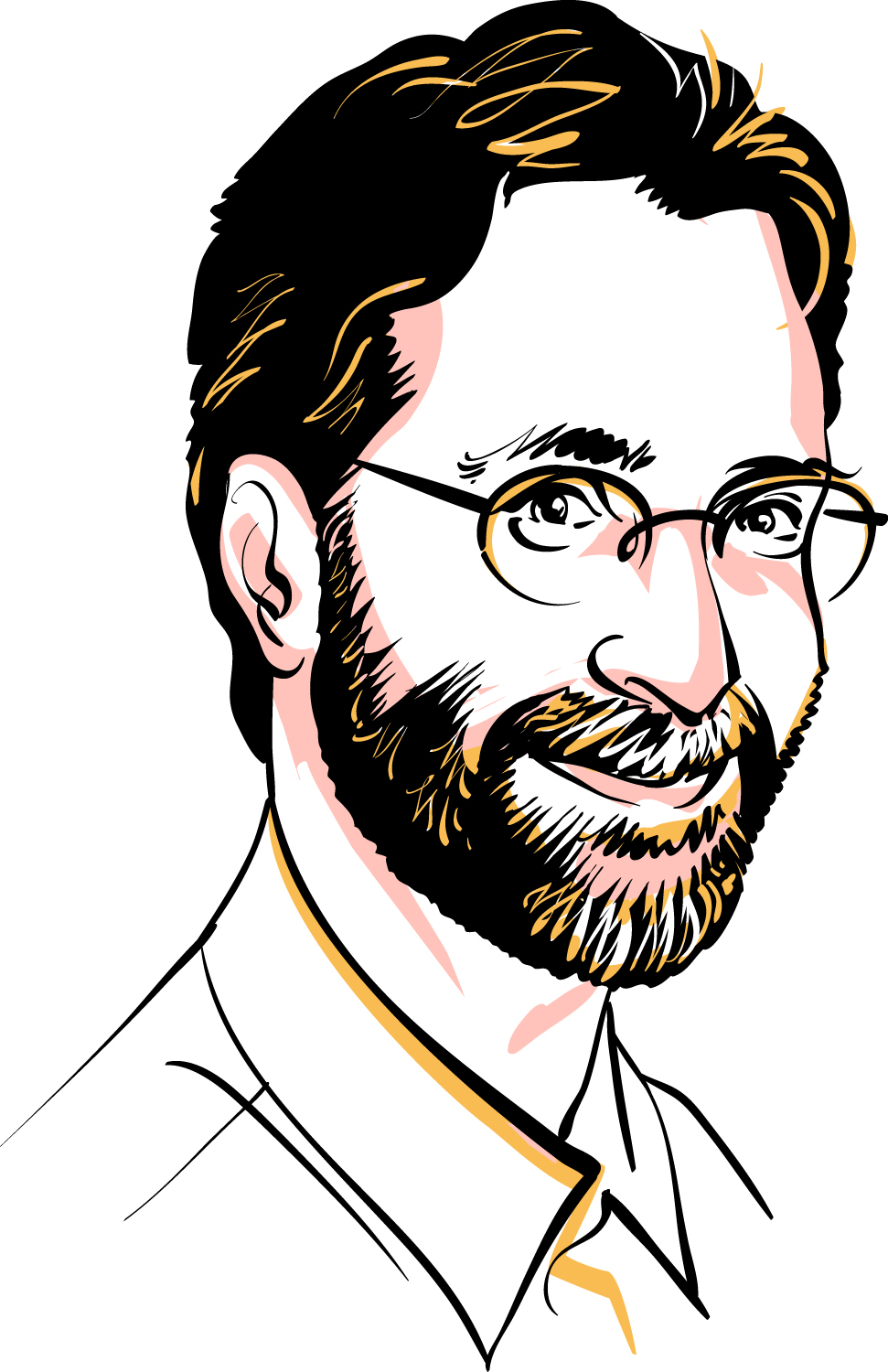
- The Spitter
- The Eloquent Silence of It
- His Subtle Speech
- His Listening
- The Bulletin Board of Your Head
- Friday Morning Pop Quiz
- Playing Ball in Brooklyn
- The National Sport
- The Old Sneakers With Which We Mow the Lawn
- Conscious Fouls
- The Hills and Dales of Their Father
- What Is Snow Like?
- In the Rain by the River
- On Scouting
- The Guy Who Wore His Son Like a Scarf
- A Letter to the Grand Mufti Sheikh Abdulaziz Al-Sheikh
- A Note on Shots
- Why Do We Not Sing These Things as Miracles?
- How to Change a Diaper
- A Boston Story
- The Black Hole
- Death of a Velociraptor
- Getting Guys for a Game
- The Praying Mantis Moment
- The Columnist
- The Inexhaustible Quarry of Memory
- Anniversary
- A Note on Ironing Boards
- The English Empire
- The Eleventh
- Barefooting
- A Mohawk in the House
- Where the Blue Begins
- The Barbershop
- A Possible Infinity of Novels
- Beer with Peter
- Finches I Have Known
- Fourples and Fiples and Sixles
- Letters and Comments on My Writing
- A Note on Stationery
- A Tinkering Kind of Guy
- Smallclothes
- The Missing
- Parsing the Paper
- The Sunday Afternoon Nap
- Eínai Enas Fto̱chós Podosfairistí̱s
- Milking a Cow
- The Long Winter
- The Kid Brother
- My Tax Questionnaire
- This Is Russia
- A Shaggy Dog Story
- Learning to Drive
- Eating the Avalanche
- Twelve Hats
- Joe Strummer Day
- The Springfield Greys
- On the Interstate
- The New Guy
- My Wedding Day
- Excellent Sneakers
- The Haunted Month
- Otter Foolishness
- Selling the House
- The Mark and Measure of the Man
- The Compost Heap
- Late Summer Softball
- The Heft of the Horse
- All Possible Pie
- The School Bus Schedule
- Your Favorite Season
- A Note on Camping
- Flip-floppery
- Paper Route
- Somewhat Doorless
- Walking to School
- On the Road Again
- The Royalty Check
- Hoop, Part II
- Writing in Australian
- The Brilliance of Foolishness
- The Five-Kilometer Race
- Entrepreneurship
- Józef Korzeniowski: A Note
- A Note on Cricket
- Address Unknown
- Writing Oregon
- Mr. Hillerman
- Final Resting Place
- Dog Stories
- Rock and Roll
- By the Light of the Silvery Moon …
- This Is the Best World Ever!
- The Theater of Clothing
- Major Auden
- Leaving Your Kid Brother at the Rest Stop
- The Five-Iron
- My Brother Peter
- The Box Scores
- Mick’s Wedding
- The Kindergarten Bus
- A Day in the Country
- The Drive Through
- How Did You Become a Writer?
- My Salt-Water Farm
- Elevate the Reader
- One Million Ice-Cream Sticks
- Songs Without Words
- A Good Priest
- Moist All Over
- Think Again, Again
- Empire Builders
- The Man Who Saw Too Much
- The Town Behind the One You Can See
- To: The National Passport Processing Center, Philadelphia
- Over the Bar in the River
- His Wooden Leg
- Things My Kids Have Said …
- The Deceased
- The House for Recovering Souls
- The Younger Brother Measuring System
- The Country of Who He Used to Be
- Storycatcher

Orion Magazine

America's Finest Environmental Magazine
The Greatest Nature Essay Ever
. . . WOULD BEGIN WITH an image so startling and lovely and wondrous that you would stop riffling through the rest of the mail, take your jacket off, sit down at the table, adjust your spectacles, tell the dog to lie down , tell the kids to make their own sandwiches for heavenssake, that’s why god gave you hands , and read straight through the piece, marveling that you had indeed seen or smelled or heard exactly that, but never quite articulated it that way, or seen or heard it articulated that way, and you think, man, this is why I read nature essays, to be startled and moved like that, wow.
The next two paragraphs would smoothly and gently move you into a story, seemingly a small story, a light tale, easily accessed, something personal but not self-indulgent or self-absorbed on the writer’s part, just sort of a cheerful nutty everyday story maybe starring an elk or a mink or a child, but then there would suddenly be a sharp sentence where the dagger enters your heart and the essay spins on a dime like a skater, and you are plunged into waaay deeper water, you didn’t see it coming at all, and you actually shiver, your whole body shimmers, and much later, maybe when you are in bed with someone you love and you are trying to evade his or her icy feet, you think, my god, stories do have roaring power, stories are the most crucial and necessary food, how come we never hardly say that out loud?
The next three paragraphs then walk inexorably toward a line of explosive Conclusions on the horizon like inky alps. Probably the sentences get shorter, more staccato. Terser. Blunter. Shards of sentences. But there’s no opinion or commentary, just one line fitting into another, each one making plain inarguable sense, a goat or even a senator could easily understand the sentences and their implications, and there’s no shouting, no persuasion, no eloquent pirouetting, no pronouncements and accusations, no sermons or homilies, just calm clean clear statements one after another, fitting together like people holding hands.
Then an odd paragraph, this is a most unusual and peculiar essay, for right here where you would normally expect those alpine Conclusions, some Advice, some Stern Instructions & Directions, there’s only the quiet murmur of the writer tiptoeing back to the story he or she was telling you in the second and third paragraphs. The story slips back into view gently, a little shy, holding its hat, nothing melodramatic, in fact it offers a few gnomic questions without answers, and then it gently slides away off the page and off the stage, it almost evanesces or dissolves, and it’s only later after you have read the essay three times with mounting amazement that you see quite how the writer managed the stagecraft there, but that’s the stuff of another essay for another time.
And finally the last paragraph. It turns out that the perfect nature essay is quite short, it’s a lean taut thing, an arrow and not a cannon, and here at the end there’s a flash of humor, and a hint or tone or subtext of sadness, a touch of rue, you can’t quite put your finger on it but it’s there, a dark thread in the fabric, and there’s also a shot of espresso hope, hope against all odds and sense, but rivetingly there’s no call to arms, no clarion brassy trumpet blast, no website to which you are directed, no hint that you, yes you, should be ashamed of how much water you use or the car you drive or the fact that you just turned the thermostat up to seventy, or that you actually have not voted in the past two elections despite what you told the kids and the goat. Nor is there a rimshot ending, a bang, a last twist of the dagger. Oddly, sweetly, the essay just ends with a feeling eerily like a warm hand brushed against your cheek, and you sit there, near tears, smiling, and then you stand up. Changed.

Brian, Thank you for sharing. I moved with your words through each paragraph. And surprisingly at the end, I really felt as though I had been reading a truly great nature essay, almost simultaneously with your essay. I very much enjoyed the imagery.
Thank you for this, brilliantly done. I feel this way when I read Annie Dillard’s essays.
Who made the b/w photographic image at the head of your column? When you wrote “image” I thought you were referring to this epigraphic view, which is lovely but not forceful enough to do what your written image purported to accomplish.
In other words, the greatest nature essay ever moves like a poem? Imagery and metaphor, showing and not telling, all in as tight and concise a space as possible given the form and genre?
Ah yes, changed. What all us nature mystics aspire to do and how skillfully you worked the other side of the mirror, seeing us seeing you writing to us turning on a dime, change changing indeed . . . .
The Greatest Comment Ever on ‘The Greatest Nature Essay Ever’ would begin with a compliment on the author’s deft use of words, words like flowing water, organic sentences sprouting one from the other like vines climbing up and over a wall and into the sunlight. The compliment would be short, just a sentence or two, complimentary of course, ending with a quiet phrase such as, ‘nicely done Brian Doyle.’
Reminds me of Abbott’s Waste-land Wonderings. Though it must belong to conservatives, I see something fresh and new. Thanks.
Brian, congratulations on a finely constructed piece. I liked it to much I’m going to feature it in my December newsletter and will mention it on my blog (www.pagelambert.blogspot.com) With credits to Orion, of course, whose link is already on my blog. I lead outdoor writing adventures and look forward to sharing your piece with clients.
I nominate David Quammen’s “The Same River Twice”
Seth Zuckerman’s The Same River Twice should be in the running too.
I don’t know why I was led down the path that led to Portland Magazine Brian Doyle but I followed it today on the day that I needed to find it. Thank you.
Very, very beautiful and inspirational.
As what I expect is becoming usual, for me, when I read an essay of You: Yeah! When I read your Essays it feels like my grandmother has just offered me a magnificent bowl of fruit. There’s not a duplicate in the basket. I just heard you speak at In Praise of the Essay, and I was the one, with my daughter at my side, who was overcome with both laughter and tears, a shaken, not stirred mixture of the two. When you’d waltz our way with your emphatic delivery of your heart on that delicate platter, I got a real sense of you. And then, as soon as you were through, and not a moment later, I opened up the issue of your Portland review, and there, on the inside cover you delivered again that same heart on the same delicate platter, when you gave me “All Legs and Curiosity.” And I thought, this man has the power to make Women Burst into tears! And I did, right there at that table. And as I tried to compose myself, my daughter at my side, age 17 having visited Fordham in the Bronx not some 15 hours before, I hand the issue over to the woman at my side. She’s told me her daughter will soon be to school, but she has serious peanut allergies, and the delicacy of finding the right roommate for that situation has her beside herself, knowing there are things she can’t control.
I think to myself, I need to talk to this guy. What and how he says it and What he writes are delivered the Very same. But, I shy a way.
I go home and I find a Brevity Gem: the one you wrote about your children, and you being a stone. I’m filled up again, and I post it on My facebook, and one of my more sensitive man friends, who’s really a real friend, leaves a sensitive comment, and I realize then, This Man has the Power to Make Men cry too! And I decide there and then, He needs to be my mentor too. Will You?
What on earth is this all about? Was ist das?
A massive loss in natural disaster is afoot if you don’t stop writing essays so nobody will remember the images anyhow. So something helpful. Dreamers dream, ideas create ideologies.
brian ilove u very much for a beautiful poem . i delivered the ur nature essay & i got 1’st prize thank u a lot brian
Can someone tell me what a nature essay is about? Particularly this one
I’m trying to answer some questions for my school assignment.
(Eng.Comp 101)
Thank you, Cliff G
wonderful essay
What’s with the goat?
I just want to make sure this is the same Brian Doyle who wrote Joyas Volardores. Both beautifully written!
Yes, Vince, the same Brian Doyle. Here’s just a few of the other essays of his that Orion has published:
http://orionmagazine.org/index.php/mag/contributor/65/
Many more have only appeared in the print edition. He’s a real favorite of ours, and our readers!
Erik, Orion
I agree with @melvin, The Same River twice is my favorite essay of all time.
Very helpful and informative article. If you do not mind then I will share it. Thank you !
When we choose to simply sit in nature together, we are writing it’s great essay.
Brian, I just read this. I haven’t yet read anything that brought me to the near tears situation but yours made me feel things I hadn’t felt in a while. At one point, minor goosebumps too.
Submit Your Comments Cancel reply
Please Note: Before submitting, copy your comment to your clipboard, be sure every required field is filled out, and only then submit.
The works of Brian Doyle remind us of the unique holiness of children and childhood

Every so often, a person carries a childlike stance of openness and vulnerability to wonder into adulthood. Brian Doyle, who died in 2017 after a short battle with cancer, was one such blessed anomaly in the literary landscape. Doyle worked (or better, played) with a variety of forms. He wrote essays, prose poems, adult novels, articles (including over a dozen pieces for America ), even a young adult novel. His writing stands apart in many ways, not the least of which is its focus on children . Doyle's work hums with an undercurrent that honors children and invites the reader to adopt their posture of innocence.
The typical toddler can squat for an interminable period of time, never tiring, quads not burning, lactic acid not building, no need for a fitness instructor to count down the seconds until he can stand upright again. The observatory stance is the child’s resting posture, a superpower second only to his or her sense of wonder at the veins of a leaf, the eyes of a toad, the stretch of a worm after the rain. Writing from this perspective, Doyle understood stories to be “ prayers of terrific power ,” and his readings are punctuated by “Amens.”
The writing of Brian Doyle, who died in 2017, hummed with an undercurrent that honors children and invites the reader to adopt their posture of innocence.
Born into a large Irish Catholic family in New York City, Brian James Patrick Doyle “ was soaked in stories from the start .” His father was a journalist and executive director of the Catholic Press Association; his mother was a gifted storyteller. Doyle adored his family, and his six brothers and one sister appear often in his essays. His prose poem (what Doyle called a “proem”) “The Tender Next Minute” invites the reader to return with him to the breath-stealing delight of a pause in chase. Doyle writes that he is in a hedge with two of his brothers for an instant “that I want to sing/ Here for a moment”: “we were smiling/ And thrilled and frightened and sunlight rippled through/ The tiny yellow flowers of the bushes.…/ You were there too, remember, in your childhood cave.”
For Doyle, childhood is delight, awe, power, joy and above all, grace. How can adults not spend time and creative energy remembering and celebrating it? Even contemplating roughhousing with his brothers conjures a pose of adoration:
[Y]ou would think the accumulated violence would have bred dislike or bitterness or vengeful urges, but I report with amazement that it did not.… Remember the crash of bodies, and the grapple in the grass, and the laughing pile on the rug, for that was the thrum of our love.
Doyle’s humble tears testify to his appreciation of the family he raised with his wife, Mary—especially because for a time that family seemed out of reach. He describes his first prayers as a father as the tears he cried when he and his wife were “told by a doctor, bluntly and directly and inarguably, that we would not be graced by children.” Doyle writes in his essay “Yes” of that in-between time: “For there were many nights before my children came to me on magic wooden boats from seas unknown that I wished desperately for them, that I cried because they had not yet come.”
For Doyle, childhood is delight, awe, power, joy and above all, grace. How can adults not spend time and creative energy remembering and celebrating it?
Once they had a daughter and twin sons, again he found himself crying every couple of weeks “for what seems like no reason at all; and I know it is because we were blessed with children, three of them, three long wild prayers; and they are the greatest gifts a profligate Mercy ever granted shuffling muddled me.” Doyle’s fatherly love and joy shine throughout his work in every form. Here is a man who understood the beauty, the irreplaceability, the gift of even the shortest life, and who stood in awe and humility before this grace without ceasing.
Liam, one of Doyle’s sons, was born with a heart one chamber short, requiring surgeries at 5 and 18 months and likely a heart transplant a few decades thereafter, all of which became the subject matter for Doyle’s book, The Wet Engine: Exploring the Mad Wild Miracle of the Heart . Of the times after these first two successful surgeries, Doyle writes, “But the days pass in their swirl and whirl and swing and song, and every day he doesn’t die again, and that knocks me out.”
Coupled with his reverence for childhood, the struggle to have children and the prospect of losing one of his children so young manifests itself in Doyle’s work as a witness to children’s unique holiness. In “Weal,” he writes, “But the most miraculous of all our gifts is children; without them we would laugh less, we would be bereft of innocence, we would lose hope, we would shrivel and vanish, with no one to remember what we so wished to be.”
And so a child stands at the fore of Mink River , Doyle’s first novel. The novel is the story of a town, or of a family, or perhaps of a town that is a family. A boy named Daniel has a bicycle accident and shatters the bones in both his legs. Doyle’s experience with Liam is filtered through lines from Daniel’s father, Owen: “His legs are all smashed. His knees are all smashed. My little boy.... He’s all smashed.” Daniel’s family and community rally around him. Not only does Daniel survive, but he encourages Owen to travel back to his native Ireland and reconcile with his own mother. Daniel is broken for a time, then leads his father to a richer, more loving life.
Likewise, in The Plover , the follow-up to Mink River , Declan’s friend “had been wounded by a storm, this guy, his little daughter hit by a bus driver when she was five years old waiting for the kindergarten bus, and his light was dimmed, and by now no one thought he would ever get it back.” The girl, Pipa, seems broken and incommunicative on the outside, but within she lives vibrantly: she can speak to animals and she is far more aware of the state and size of her soul than her father or Declan. She, too, offers the adults in her life hope and a measure of redemption.
With what some might call a uniquely Catholic point of view and others would recognize as simply a matter of common sense, Doyle draws unborn children characters with the same indisputable dignity as those out of the womb. Setting a scene of a young family, Doyle writes, “On Saturday Sara and Michael and the girls, three of them if you count the one in Sara’s womb, have breakfast together.” Later, another expectant mother loses a baby, and though the child’s mother can’t bestow a name on this child, the narrator does: Inch. The child is
born into the river…on and on he tumbles and whirls…his heart hammering, his arms and legs milling wildly, his eyes open, his mouth open…but as he nears the sea he fails, he fades…and just as he is startled by salt for the first and last time in the eleven minutes of his life he closes his eyes, puts his thumb in his mouth, and enters the ancient endless patient ocean, where all stories end, where all stories are born.
Doyle handles an otherwise unseen scene with grace; he observes the child with great love and compassion. To love children is to love life, and to love life is to honor death.
Doyle’s writing has the potential to stir this generation and the next to put down their smartphones and gape at every life with childlike wonder.
Near the end of the novel, a police officer, Michael, is recognized for his heroic sacrifice in apprehending a man who sexually assaulted his daughter. The governor awards Michael a medal, saying, “I have seen much, and now that my own service is about to end, I can be frank about what is important, as opposed to what we say is important. Children are important, and serving each other is important…and everything else is not as important.” How natural it is to imagine such language coming from Doyle himself.
Indeed, the protagonist of Chicago , modeled on a younger Doyle, relates an anecdote of a child lost and another found, a story that “above all others stays with me still,” given by the seasoned street officer, Matthew. Matthew sees the child, Muirin, every other day, “and you will too, if you keep your eyes peeled. Next time I see him I will point him out.” Should we learn to look with Doyle’s eyes, we won’t need Matthew’s gesturing; we will recognize the holiness, the mystery, the power in children for ourselves.
Doyle passed away in May 2017 at age 60, just six months after being diagnosed with a brain tumor. When asked how friends, fans and fellow writers could help him, his response was simple: “Be tender and laugh.” His greatest fear was not being able to support his family any longer; a crowd-funded campaign set up by a family friend helped ease his mind. He is remembered for his “fervor for storytelling and his unqualified joy in writing.”
Doyle’s writing has the potential to stir this generation and the next to put down their smartphones (unless they’re using them to read Doyle) and gape at every life with childlike wonder, to pause and see the more magnificent thing, the more tremendous gift toward which each tiny miracle points.

Lindsay Schlegel is a freelance writer and editor whose work has appeared in Verily, CatholicMom.com, Aleteia, Radiant, Vigil and more. She is the author of Don't Forget to Say Thank You: And Other Parenting Lessons That Brought Me Closer to God and co-author of T he Road to Hope: Responding to the Crisis of Addiction .
Most popular

Your source for jobs, books, retreats, and much more.

The latest from america
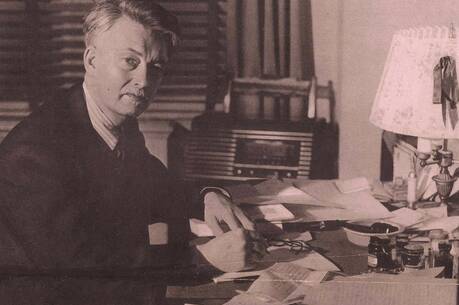

Find God everywhere with writer Brian Doyle

Doyle’s words breathed life into my faith.

Like me, he found God in the ordinary.

About the author
Shemaiah gonzalez, you may also like.
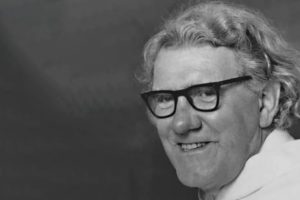
Herbert McCabe proposes a grown-up image of God

In a culture of death, find ways to nourish life
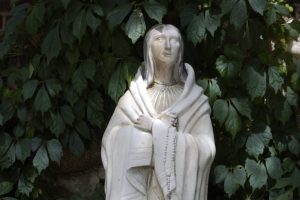
7 saints for gardeners
Add comment.
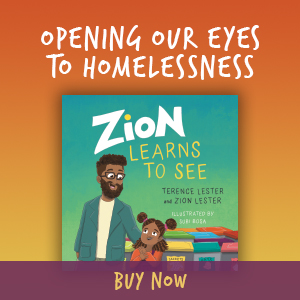
What’s trending

Why do we call the Resurrection ‘Easter’?

Who framed Mary Magdalene?

What is the prophecy of St. Malachy?
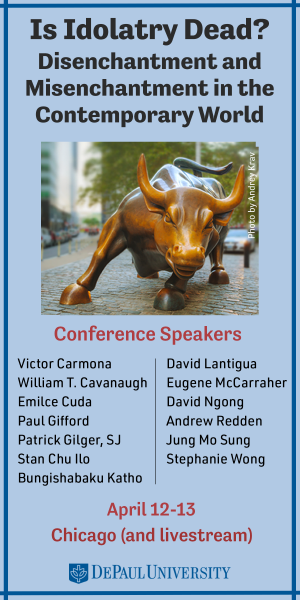

IMAGES
COMMENTS
Director's Statement. My husband read Brian Doyle’s extraordinary essay, His Last Game, in 2013’s The Best American Essays and said, “Honey, you have to read this.” In just three pages, Doyle manages to tell a story about the teasingly feisty and protectively tender ways that men express deep love, about how splendid life is if you can develop a certain kind of vision – the capacity ...
His Last Game. Brian Doyle ’78. Autumn 2012. Editor’s note: On a peaceful Saturday morning in early September I sat in my backyard, savoring the scene before me: the grass and trees and black-eyed Susans, all feeling different now — as the sunlight and scents took on an autumn mood. It all reminded me of a lovely essay we published in ...
Since this short essay by Brian Doyle was published in the Scholar 15 years ago, it has been read hundreds of thousands of times on our website and often borrowed for classroom use. It is the lead piece in a just-published collection of Brian’s essays called One Long River of Sound: Notes on Wonder. Brian died at the age of 60 in 2017.
Brian Doyle, award-winning author, editor of the University of Portland's magazine, died May 27 from complications related to a brain tumor. Doyle, pictured in a 2012 photo, was 60.
A trip through ourarchives brought me to Brian Doyle’s first contribution to America, a 1994 essay, “Naming,” about his toddler daughter’s exploration for the names of things—and his own ...
Brian Doyle died in 2017 at 60 of complications from a brain tumor. He left behind seven novels, six collections of poems and 13 essay collections. The whole time he was writing, he was also ...
The Complete Epiphanies A blog about the stories that nourish and sustain us, and the small miracles of everyday life. Brian Doyle, an essayist and novelist, died on May 27. He was the editor of Portland magazine and the author of numerous books, most recently the novel Chicago. Boxing Out The Spitter The Eloquent Silence of It […]
Nor is there a rimshot ending, a bang, a last twist of the dagger. Oddly, sweetly, the essay just ends with a feeling eerily like a warm hand brushed against your cheek, and you sit there, near tears, smiling, and then you stand up. Changed. Brian Doyle (1956-2017) was the longtime editor of Portland Magazine at the University of Portland, in ...
The writing of Brian Doyle, who died in 2017, hummed with an undercurrent that honors children and invites the reader to adopt their posture of innocence. ... Doyle writes in his essay “Yes ...
From beyond his grave and theirs, 10 years after 9/11, Doyle reached out to comfort and encourage us even in sorrow. In his last essay, “Last Prayer,” Doyle thanks God, saying, “Here in my last lines, I close my eyes and weep with joy that I was alive, and blessed beyond measure.”